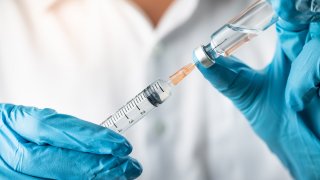
California's governor is pledging a more seamless coronavirus vaccination system that should make it easier for nearly 40 million residents to know when it's their turn to get vaccinated and where to sign up, easing some of the confusion and angst as 58 counties try to roll out the scarce shots themselves.
The state would move to an age-based eligibility system after vaccinating those now at the front of the line, including health care workers, food and agriculture workers, teachers, emergency personnel and seniors 65 and older, Gov. Gavin Newsom said at a news briefing Monday.
The nation's most populous state has had a rocky vaccine rolloutin the six weeks since U.S. hospitals started inoculating health care workers. Some counties are opening up appointments to anyone 65 and older, while others are sticking to patients 75 and up. Frustrated local officials say they don't have enough vaccine and few answers for constituents.
Newsom, a Democrat, said his administration is “simplifying and standardizing the process statewide" to get all eligible Californians vaccinated in a timely manner.
The changes also include a new statewide site called “My Turn" — now a pilot program in Los Angeles and San Diego counties — where residents will be able to get notified when it's their turn and make an appointment. Dr. Mark Ghaly, secretary of the state’s health and human services agency, is expected to provide more details of the new system at a Tuesday briefing.
Older Californians have complained of waiting on hold for hours with their health care provider to try to get a vaccine appointment. Some say they have heard nothing from their hospital or county about when a vaccine might be ready for them.
Newsom said providers that don't use at least 65% of their supply and don't submit plans to administer the rest will have their doses taken away and reallocated to a provider that can.
The California Hospital Association welcomed the move to a more centralized system but noted that the federal government needs to step up with a greater and more consistent supply, said Carmela Coyle, the group's president and CEO.
“This new plan ensures that when those doses begin to flow to California, our state will be ready to get them to the people who need them," she said.
California has administered more than 2.4 million of 4.5 million doses shipped.



